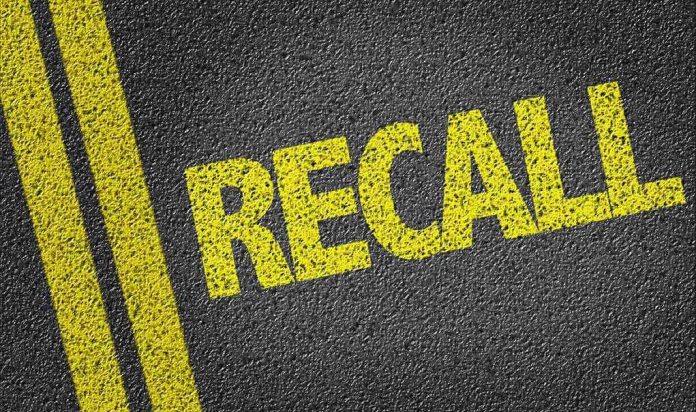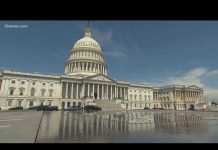
As Ford recalls nearly 625,000 vehicles for critical safety defects, Americans are left questioning whether overreliance on complex technology and regulatory complacency are putting families at unnecessary risk.
Story Highlights
- Ford initiates massive recall of nearly 625,000 vehicles due to seat belt and rear-view camera failures.
- Recall impacts popular models including Mustangs and major truck lines, raising concerns about consumer safety and oversight.
- Regulatory agencies and dealerships now face logistical challenges as owners are urged to seek immediate repairs.
- The scale and nature of the recall spotlight ongoing doubts about the reliability of high-tech safety features in American cars.
Ford’s Major Recall and the Safety Threat to American Drivers
On October 17, 2025, Ford Motor Company publicly announced a recall affecting nearly 625,000 vehicles across the United States, citing malfunctioning seat belts and defective rear-view camera displays as critical safety hazards. The affected models include the popular Mustang and a range of the company’s trucks. Ford’s admission comes after mounting reports of seat belt failures and camera problems, highlighting the vulnerabilities that arise when automakers push electronic systems without rigorous long-term testing. The company and the National Highway Traffic Safety Administration (NHTSA) have warned owners that continued use of these vehicles without repair could result in serious injury or even death in the event of an accident.
Ford recalls nearly 625K US vehicles over faulty seat belts, camera displays https://t.co/LcjvF7ZUUy pic.twitter.com/NKhX5G0XuG
— NY Post Business (@nypostbiz) October 17, 2025
The scale of this recall is unprecedented for Ford in recent years and underscores growing concern about the reliability of new automotive technologies. In past years, manufacturers have increasingly integrated electronic safety systems, but these advancements have often outpaced the industry’s ability to ensure their dependability. Ford’s history includes previous recalls for similar seat belt and camera issues, yet this event stands out for its size and urgency. The recall not only disrupts the daily lives of hundreds of thousands of vehicle owners, but also raises tough questions about whether government regulators are doing enough to hold automakers accountable for safety in the era of high-tech vehicles.
Regulatory Response and Dealer Challenges
The NHTSA, America’s lead vehicle safety watchdog, has responded by emphasizing the necessity for immediate owner action. Ford dealerships and service centers nationwide have been mobilized to inspect and repair affected vehicles, but the logistics of servicing such a large number of cars are daunting. Owners have been urged to contact authorized dealers to schedule repairs, but with service bays filling up, delays are inevitable. This situation exposes the strain that mass recalls place not just on automakers, but also on the businesses and workers responsible for fixing these problems, and on the families who depend on reliable transportation. Many conservative Americans, already skeptical of regulatory effectiveness after years of perceived government overreach and misplaced priorities, are left to wonder: Is the system working to protect us, or simply reacting after the fact?
Dealerships, often small businesses rooted in their local communities, now face the dual challenge of managing a surge in service requests and maintaining customer trust. As these businesses scramble to keep up, Ford’s leadership is under pressure to ensure that replacement parts and technical support are available nationwide. The recall’s timing—coming after years of industry criticism over both overspending on questionable tech and a lack of focus on core reliability—exposes the risk of prioritizing flashy features over the fundamentals of safety and American craftsmanship.
Wider Impact: Consumer Trust and Industry Lessons
While the immediate concern is vehicle safety, the long-term implications of Ford’s recall go far beyond logistics. In the short term, families face uncertainty, inconvenience, and potential danger if repairs are delayed or unavailable. Over the long haul, Ford faces reputational risks and possible legal and financial consequences, while the auto industry as a whole may see renewed calls for more rigorous testing standards and a return to common-sense engineering. The recall sends a clear message: When high-tech systems fail, it is families, not bureaucrats or corporate executives, who pay the price. For many in the conservative community, this episode fuels existing skepticism toward both big business and big government, underscoring the need for accountability, transparency, and real-world results over empty promises.
Experts in automotive safety stress that the integration of advanced technology must go hand in hand with robust oversight and real-world testing. Yet time and again, recalls like Ford’s demonstrate systemic challenges in modern vehicle design, where the rush to market sometimes overrides the duty to deliver safe, reliable products. As the recall unfolds, Americans will be watching closely for signs that both the industry and the government have learned the right lessons—and that American families will not be left vulnerable to the failures of either.
Sources:
Ford recalls nearly 625K US vehicles over faulty seat belts, camera displays – The Independent
Ford recalls vehicles Mustang trucks – The Dispatch







